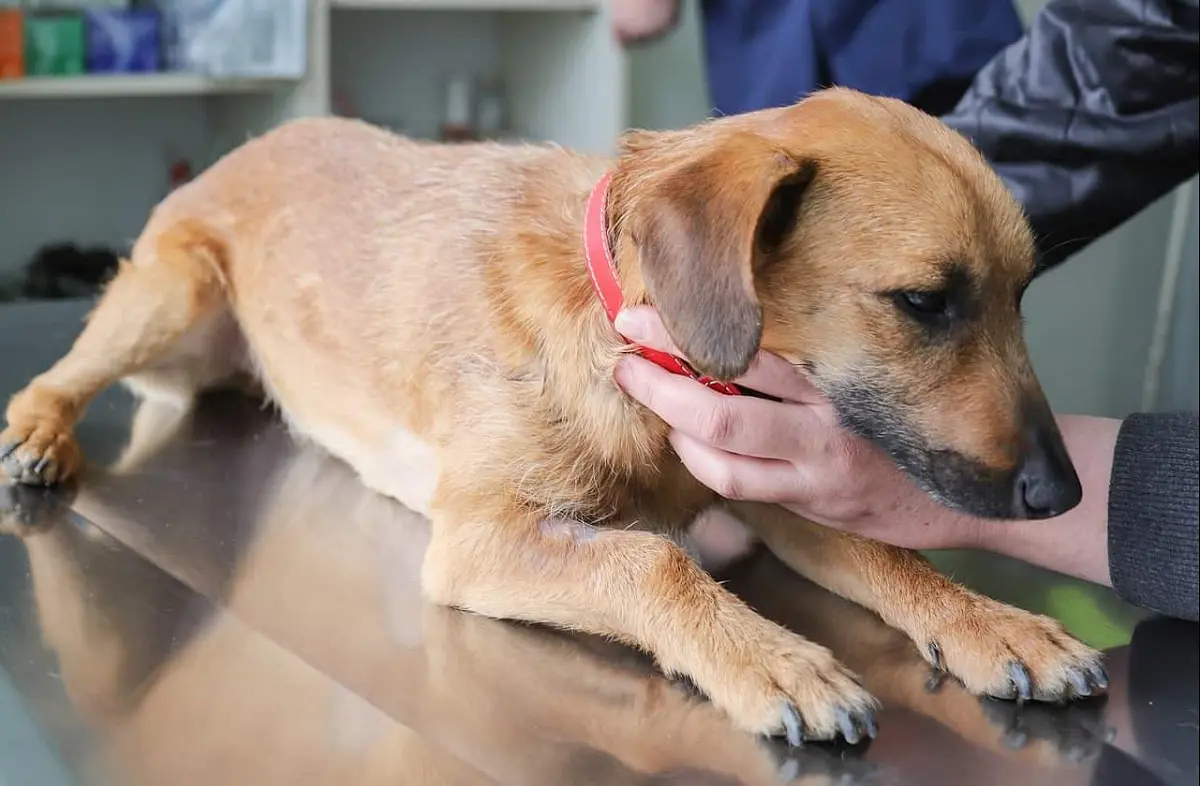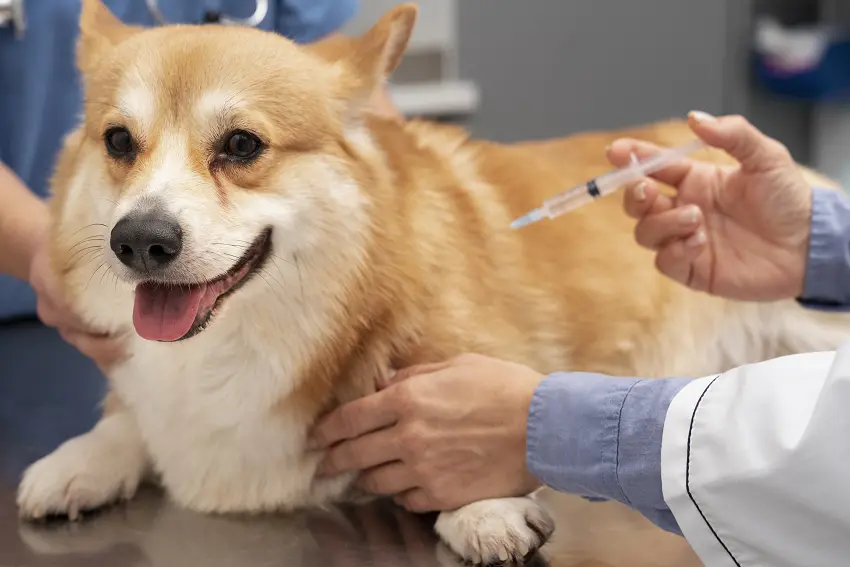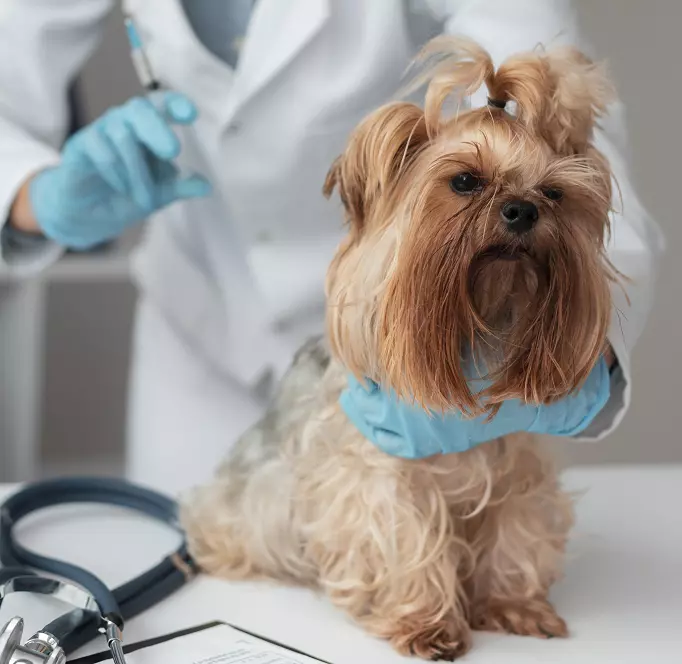What Happens If A Dog Gets Vaccinated Twice? Here’s the Answer
Vaccination is important for every dog. But the question is this: what happens if a dog gets vaccinated twice? While it may seem like a strong defense, over-vaccinating a dog can lead to serious side effects. This is the reason why veterinarians are very strict when it comes to the schedule of a dog’s shots.
While vaccines are preventative, too much of it can trigger negative reactions. In the end, over-vaccination may defeat its purpose.

Can you over-vaccinate a dog?

Yes, over-vaccination can occur to dogs. It’s not safe, and it can result in adverse health problems and even life-threatening effects on smaller breeds. Dogs like Yorkshire Terrier and Chihuahua will succumb to the harm of over-vaccination easier than larger dogs. Their smaller size makes the vaccine more potent, more so if administered twice than what’s needed. However, over-vaccination might be unavoidable on some occasions.
Rescue dogs with no clear history will often suffer from over-vaccination. This is unless the vet performs a titer test to identify if there are present antibodies indicating a previous vaccination.If you have a small rescue dog, I highly suggest that you consult the vet. The veterinarian will perform a full checkup on your dog to know if it’s possibly vaccinated before. Depending on each dog, being vaccinated twice may cause an allergic reaction. Some will also exhibit symptoms that are easy to mistake for other conditions. The key here is observing your dog right after the vaccination to spot any of the said symptoms. While there would be mild side effects to vaccination, it shouldn’t endanger your dog’s life. please read here how to help dog with skin allergies.
Most dog vaccinations are given once a year or every three years. The reason for this is that some shots are not really necessary and just a cash-grab scheme of some vet clinics.
Signs of over-vaccination in dogs

To be fair, vaccinations really do have side effects. It’s the natural reaction of the body to the new substance injected into it. This is also a sign that the body is accepting the vaccine. In just a few hours, the symptoms should subside, and your dog will be its normal self again.
If you think that your dog is over-vaccinated, you should watch out for the following symptoms:
- Diarrhea
- Vomiting
- Fever
- Tenderness
- Inflamed lymph nodes
- Skin hives
- Kidney failure
Take note that these can be common side effects of vaccination, so you have to be watchful of the severity. If the side effects don’t go away within 6 to 12 hours, it’s best to bring your dog to the vet. Please read here can cbd oil help diarrhea.
Each dog will have unique reactions to over-vaccination. The rule of thumb is that any adverse change in your canine’s health and habits should be a cause of concern.
What happens if a dog gets a rabies shot twice?
A friend of mine once had his French Bulldog given a rabies shot twice by accident. If you’re facing the same dilemma, you shouldn’t worry too much. Most medium to large dogs won’t suffer from extremely adverse side effects after getting rabies shots too close to each other. please read here how to know if a dog has rabies
You just have to watch out for common side effects like fever, pain at the injection area, lethargy, and potential vomiting. These symptoms should subside after a few hours. If not, your dog is probably suffering from a more serious set of symptoms. This requires immediate veterinary care.
Proper schedule of vaccines for dogs

To prevent your dog from being vaccinated twice, you should keep tabs on its shot schedule. The vet will have a vaccination program that you should follow for your dog.
For new owners, the following is the schedule of puppy shots that your dog should get:
- Rabies shot. This is a very important vaccination and required in many states. It can be administered in as early as three weeks on your pup’s life. After the initial dosage, annual boosters are required to protect your dog and other people from the threat of rabies infection.
- Distemper shot. Distemper is a respiratory infection that can spread on a dog’s nervous system and digestive system. This shot must be given to your dog between 6 and 16 weeks old. Booster shots for distemper are required every three years for adults once the pup received the first series of shots.
- Parvovirus shot. This vaccination is given to dogs on their 6 to 16 weeks of life. It comes in two doses that are administered about 3 weeks apart. For the best protection, your dog should get annual booster shots.
- Kennel cough shot. This infectious condition can be prevented by getting your dog vaccinated. The veterinarian will determine the best time for the vaccine based on your dog’s size, age, and overall health.
- DHPP shot. This includes influenza, leptospirosis, coronavirus, Lyme disease, and bordetella in one shot. These infections are related and can be caused by each other’s virus. To prevent it, your pup should receive a DHPP shot every one to two years.
These are just some of the essential vaccinations every dog should get. Depending on your pooch’s susceptibility to other diseases, the vet may recommend other shots as needed.
No matter what your dog’s vaccination program is, it’s important to follow the succession the vet recommends. This guarantees that your dog will receive ample protection from the threat of various health conditions.
Should I vaccinate my dog every year?
I often encounter this question with fellow dog owners whenever I bring Sherlock to the dog park. For primary vaccines, I give it a yes. These include rabies, distemper, parvovirus, and similar shots. Most of these vaccines require annual boosters.
Depending on the vaccine that the vet uses, your dog may only need a booster shot every three years. Take note that your dog doesn’t need booster shots for all vaccinations. You should always ask the vet to know what your dog really needs.
Are vaccines given by weight for dogs?
No, unlike other pharmaceuticals, vaccinations are given in a single, definite dose for all dogs. Whether it’s a Yorkie or a Bullmastiff, the two dogs will receive the same vaccine dose as measured through cc. The efficacy of the vaccine doesn’t have to do with your dog’s size. The goal is for the immune system of the pooch to develop immunity once the vaccine is introduced.
Conclusion
What happens if a dog gets vaccinated twice? Some dogs will experience adverse reactions that require immediate veterinary care. It’s important to be on top of your dog’s vaccination schedule to prevent getting similar shots. Also, you must talk to the vet to understand what your pooch needs. Like babies, our pups need vaccinations to protect them from life-threatening health problems.
